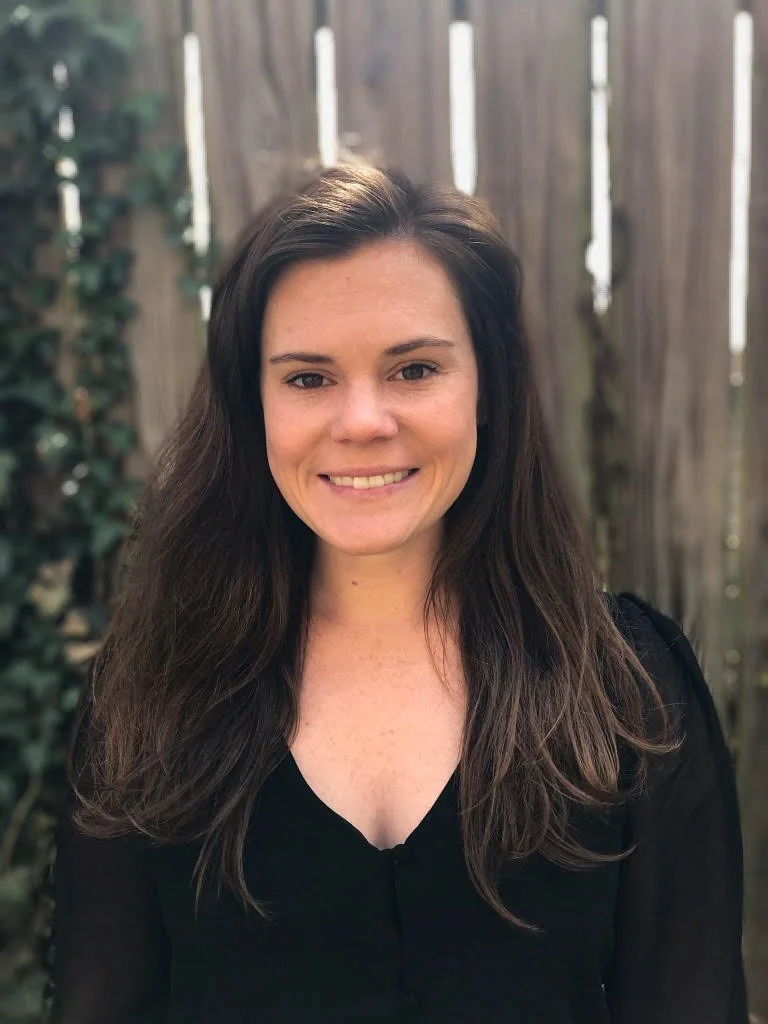Christopher Newport University
Newport News, Virginia
Dr. Brooke Covington
Dr. Brooke Covington is an assistant professor of English at Christopher Newport University (CNU), where she teaches courses in professional writing, civic engagement and social justice, and grant writing. As the academic director of CNU's Center for Community Engagement, she works closely with community partners, students, and faculty to support community-campus engagement projects in the Tidewater region of Virginia. Brooke is the co-founder and co-director of the Tidewater Community Writing Center, a free-to-all resource to support local writers of all backgrounds and capabilities in the Hampton Roads community. She holds a Ph.D. in Rhetoric and Writing from Virginia Tech.
This summer, Dr. Covington will spend her time conducting research with an undergraduate researcher through CNU's Summer Scholar program. Together, Dr. Covington and her Summer Scholar, Julianne, will study the rhetorical dimensions of confederate monument controversies and how ordinary citizens use storytelling to counter master narratives about the confederacy and white supremacy.
Dr. Nicole Emmelhainz
Dr. Nicole Emmelhainz is an Associate Professor of English at Christopher Newport University, where she also serves as the Writing Program Administrator and Director of the Alice F. Randall Writing Center. She is the co-founder and co-director of the Tidewater Community Writing Center. Her pedagogical practices and research interests focus on ways to engage students in social-justice and community-oriented learning experiences.
As a Bonner Foundation Faculty Fellow, Dr. Emmelhainz will help run workshops on the best practices for community-engaged learning and pedagogy for The Tidewater Project Faculty Fellows cohort. Her experiences as the co-director of the Tidewater Community Writing, which is sponsored by Christopher Newport’s Center for Community Engagement and staffed, in part, by the Alice F. Randall Writing Center writing consultants, will ground much of the practical examples for these faculty workshops.
Faculty Fellow Roles
Drs. Covington and Emmelhainz co-founded The Tidewater Project. This initiative includes three related yet distinct community engagement programs. The first is a student-led social justice and community engagement podcast known as The Tidewater Project. Dr. Covington manages and produces the podcast alongside students from her Introduction to Civic Engagement and Social Justice course. In teams of four, the students pitch, script, and record the episodes, each of which features stories and perspectives from the local community that often go unheard. The debut season of The Tidewater Project will be available for streaming in Spring of 2022.
The second initiative under The Tidewater Project is a faculty development program that supports a cohort of five faculty fellows who commit to infusing community-engaged learning into their research and pedagogical practices. Dr. Emmelhainz will help run workshops on the best practices for community-engaged learning and pedagogy for The Tidewater Project Faculty Fellows cohort. This year-long professional development opportunity allows instructors to learn about community engagement best practices, to connect with local members of the community on potential collaborative projects, and to foster community-engaged learning in (and out of) the classroom. Importantly, The Tidewater Project faculty fellows are encouraged to cultivate a community of practice around their shared values when working with the community and to share these values within the larger institution.
The third initiative under The Tidewater Project involves the founding of a community writing center. The Tidewater Community Writing Center is a free-to-all community resource that offers support for writers of all backgrounds and abilities whether the writing is for professional, creative, or personal capacities. The Center is staffed by volunteers from across campus and the local community, and they strive to connect local writers with the resources they need to succeed across small and large writing projects. The Center will function as a living-learning environment, a space for constant engagement and reflection on what can be accomplished through mindful, equitable open-educational services.


